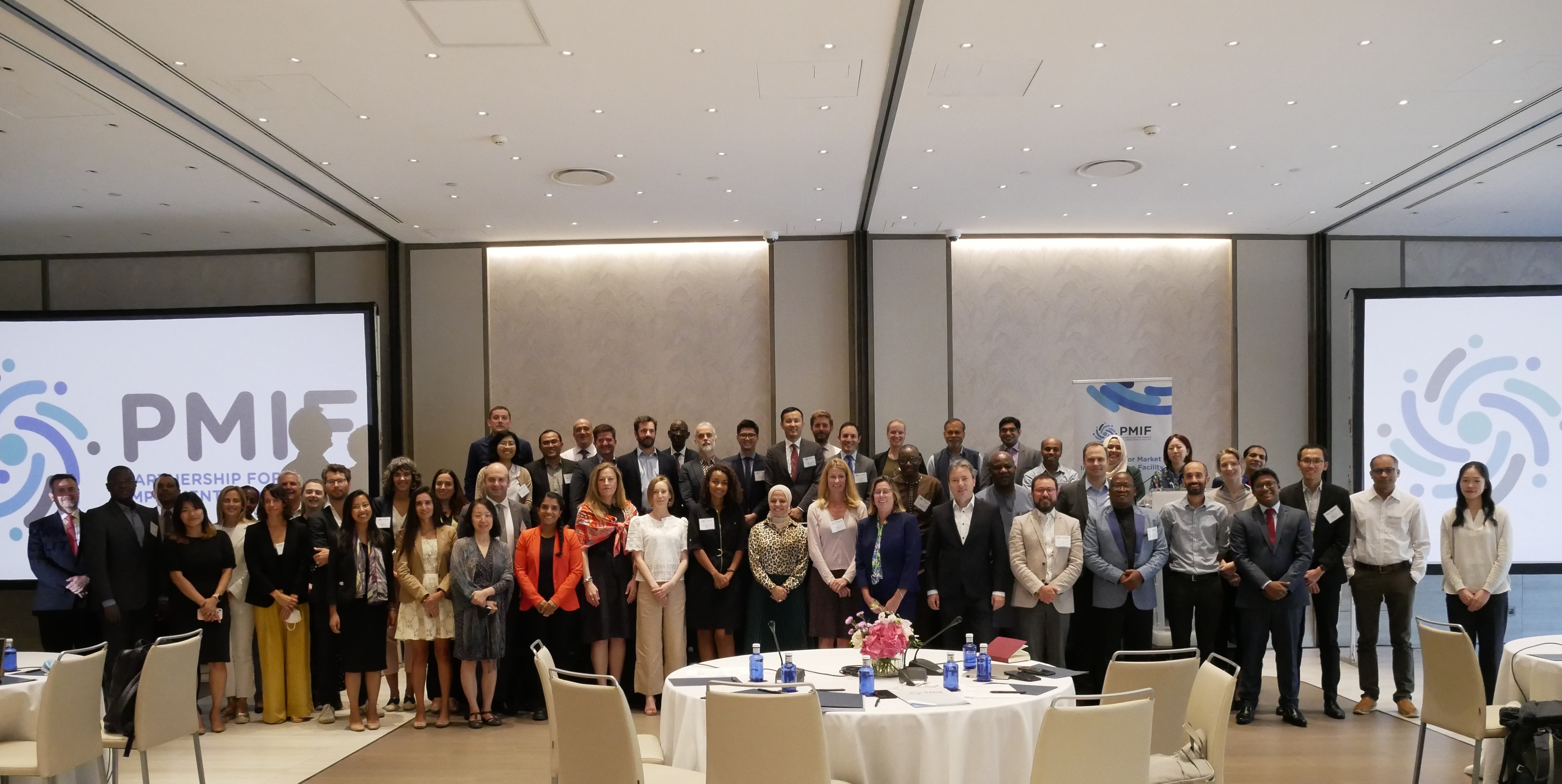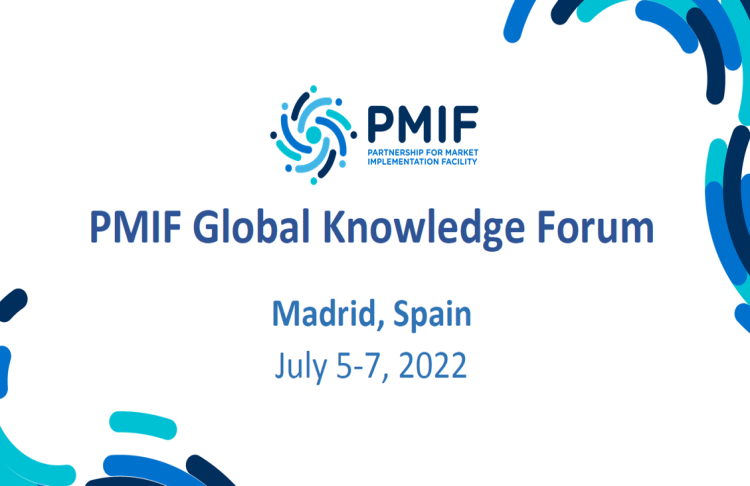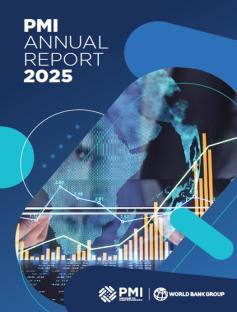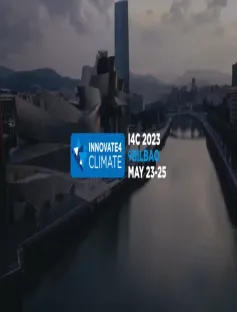
The Partnership for Market Implementation Facility (PMIF) held its PMIF Global Knowledge Forum on carbon pricing, markets and climate finance on July 5-7, 2022 in Madrid, Spain. The PMIF thanks the Spanish Ministry for the Ecological Transition and the Demographic Challenge (MITECO) for hosting this important event.
The PMIF Global Knowledge Forum brought together the PMI stakeholder community – more than 70 participants in-person (and 75 participants virtually) from implementing countries, donor countries, technical partners and World Bank project teams – to discuss state and trends of carbon pricing policy and market development and take stock of progress made in the implementation of PMI program activities in participant countries and regions.
This year’s PMIF Global Knowledge Forum, included the following main segments:
- July 5: PMIF Technical Workshop on Just Transition and Carbon Pricing
- July 6: PMIF Knowledge Exchange on Innovation for Climate Finance and Carbon Markets
- July 7: PMIF Information Sharing on Country & Regional Work Programs
Download Summary of the Knowledge Forum
--------------------------------
AGENDA
Day 1: July 5, 2022
Opening Session. Special segment in collaboration with host, Government of Spain
- Valvanera Ulargui, Ministry for Ecological Transition and the Demographic Challenge, Spain
- Philipp Ischer, State Secretariat for Economic Affairs, Switzerland, and Chair, Technical Advisory Group, Partnership for Market Implementation (PMI)
- Venkata Putti, Partnership for Market Implementation Facility (PMIF), World Bank
Session 1. The role of a Just Transition and its nexus with carbon pricing
This session opened with an expert presentation by Ana Belén Sanchez from the Institute for Just Transition (ITJ) in Spain. She gave an overview on the just transition policies in Spain, how they are designed and implemented and what key take-aways are from the experiences so far. Her presentation was followed Luca Lo Re from the International Energy Agency who summarized the key recommendations from the Global Commission on a people-centered clean energy transition, a high-level multi-stakeholder commission centered on questions of a just energy transition. The session concluded with reflections by Rocío García from Decarboost Latin America who emphasized the different challenges in developed versus developing countries, especially when it comes to investments and financing of a just transition.
Links to session presentations by:
- Ana Belén Sánchez, Institute for a Just Transition (ITJ), Spain
- Miguel Rescalvo, Neyen
- Luca Lo Re, International Energy Agency (IEA)
- Rocío García, Decarboost Latin America
Session 2. Opportunities and challenges for a Just Transition created by carbon pricing policies
This session started with an introductory presentation by Miguel Rescalvo, Neyen, explaining the concept of a just transition in its relation to carbon pricing policies and described its role and relevance for the design and implementation process of such policies. This was followed by a presentation by Xaquín García from the Basque Centre for Climate Change (BC3) in Spain, who showed the results of his investigation on just transition impacts of different policy measures comprised in the European climate change policy package “Fit-for-55”. Next, Malin Ahlberg from the Federal Ministry for Economic Affairs and Climate Action (BMWK) of Germany presented opportunities and challenges of incorporating just transition considerations in carbon pricing policies and highlighted several experiences and lessons-learnt in Germany. The session closed with reflections by two regional experts: Eyüp Kaan Morali from the Ministry of Environment, Urban and Climate Change of Türkiye, who commented on the relevance and experience with just transition measures in his country. Finally, Oleksandr Sushchenko from UNDP Ukraine concluded by sharing his experience on the topic based on UNDP’s work in Ukraine.
Links to session presentations by:
- Miguel Rescalvo, Neyen - Just Transition in Carbon Pricing
- Xaquín García, Basque Centre for Climate Change (BC3) - Socioeconomic impacts of the European Green Deal and Just Transition measures
- Malin Ahlberg, Federal Ministry for Economic Affairs and Climate Action Germany - Opportunities and challenges of incorporating just transition considerations into carbon pricing policies
- Eyüp Kaan Morali, Ministry of Environment, Urban and Climate Change, Turkey - Opportunities and challenges for a Just Transition created by carbon pricing policies –Turkey Case
- Oleksandr Sushchenko, United Nations Development Program (UNDP) Ukraine
Session 3. Carbon pricing design to support Just Transition goals
This session was comprised of two expert presentations that dealt with elements and strategies to be considered in the design and implementation of carbon pricing policies to integrate considerations for a Just Transition from the start and the aspects to consider depending on the carbon pricing instruments. First, Stefano de Clara from the International Carbon Action Partnership (ICAP) presented on the policy design for market-based carbon pricing instruments, focusing especially on Emissions Trading Systems (ETS). This was followed by a presentation by Rodrigo Pizarro from OECD, who explained the rationale and design aspects of carbon taxes, and subsidy removals, respectively.
Links to session presentations by:
- Marcos Castro, PMI Management Unit, World Bank
- Stefano De Clara, International Carbon Action Partnership (ICAP) - Just Transition: Elements and considerations for Emissions Trading Systems
- Rodrigo Pizarro, Organisation for Economic Co-operation and Development (OECD) - Carbon Pricing, Markets, and the Just Transition
Session 4. Where do we stand and how to move forward in the PMI?
This session started with a brief overview of the topics and approaches the PMI implementing countries have presented in their funding proposals to the PMI, which was summarized by Marlen Goerner from the PMI Secretariat. The session continued with a panel discussion with participation from representatives from the United Kingdom, Colombia, Indonesia and Spain. Each country representative gave a brief overview of their respective understanding of the role and relevance of just transition consideration for carbon pricing policies in their countries and described policy plans and lessons learnt so far.
Links to session presentations by:
- Marlen Goerner, PMI Management Unit, World Bank - Just Transition in the PMI
- Chris Shipley, Department of Business, Energy and Industrial Strategy, United Kingdom - Operationalizing Just Transition in carbon pricing implementation
- Marco Murcia, Ministry of Environment and Sustainable Development, Colombia - PMI Colombia Just Transition
- Wisnu Murti, Ministry of Environment and Forestry, Indonesia - Just Transition and Carbon Pricing in Indonesia
Day 2: July 6, 2022
Session 1. Climate action, enabling environment and capacity building: overview of the World Bank’s Climate Umbrella Programs
The session started with a synopsis on two of the Bank’s three climate umbrella programs namely the Climate Support Facility (CSF) and the Climate Emissions Reduction Facility (CERF). The presentation started off by outlining the CSF’s strategic priorities as well as its Whole-of-Economy approach to accelerating climate action. The next presentation was on the CERF – a new umbrella trust fund with the aim of consolidating all of the Bank’s results-based climate finance work. The fund consolidates results-based climate action across three pillars: (1) natural climate solutions; (2) sustainable infrastructure solutions; (3) fiscal and financial solutions. The session included a panel discussion with representatives from donor and client countries as well as the World Bank. The panel discussed the challenge of scarce public climate finance in the face of growing needs of financing to achieve net zero targets and on avenues to utilize this scarce resource to leverage private financing for developing countries. Given the need to mobilize further private sector finance, the panel also discussed the utility of carbon markets to leverage private finance to meet the needs of developing countries, particularly on their readiness to access either voluntary or compliance carbon markets.
Links to session presentations by:
- Luis Tineo, Climate Support Facility (CSF) - Climate Support Facility
- Jose Andreu, Climate Emissions Reductions Facility (CERF) - Driving climate ambition through results-based finance
- Malin Ahlberg, Federal Ministry for Economic Affairs and Climate Action, Germany
- Olga Yukhymchuk, Ministry of Environmental Protection & Natural Resources, Ukraine
- Jeffrey Delmon, East Asia and Pacific Region, World Bank
- Reham Rizk, Ministry of Economic Development and Planning, Egypt
Session 2. End-to-end infrastructure ecosystem to support countries with mitigation policy implementation
The session started with a presentation on the end-to-end digital ecosystem for carbon markets and the Climate Warehouse metadata infrastructure. This included a number of World Bank activities, such as the opensource registry offering, d-MRV and tokenization engine that are currently being developed under the Climate Warehouse umbrella. This session included a panel discussion with the governments of Singapore, Senegal, and Japan as well as the UNDP Turkey Office. The panel highlighted the need to enhance transparency, integrity and trust in the carbon markets and the critical role of technology and infrastructure in delivering tangible solutions to enable the scale-up process of voluntary and compliance markets. The session also focused on how to support countries with Article 6 implementation through an end-to-end infrastructure ecosystem by considering the transaction costs, interoperability of technologies, capacity of countries and time it takes to implement.
Links to session presentations by:
- Dirk Forrister, International Emissions Trading Association (IETA)
- Chandra S. Sinha and Gemma Torras-Vives, World Bank - End-to-End Digital Ecosystem for Climate Markets
- Rui Yun Gan, National Climate Change Secretariat, Singapore
- Mbaye Diagne, Afrique – Energie – Environnement, Senegal
- Maiko Uga, Ministry of Environment, Japan
- Yevgen Groza, United Nations Development Program (UNDP), Istanbul Regional Hub - Developing Article 6 infrastructure - UNDP carbon cooperation platform & national registries
Session 3. National level strategies and policy framework for international carbon markets
The session started with the brief update of the recently concluded SBSTA meetings in Bonn and highlights the remaining issues that needs to be resolved during the COP27 in Egypt. These include pending issues for the Article 6.2 (reporting tables and outlines for Article 6.2, infrastructure requirements, inclusion of ‘avoidance’ projects and accounting rules for LDCs/SIDS) and the Article 6.4 (roles of host party, inclusion of avoidance, SOP, OMGE, use of CERs for the first NDC etc). The session also updated the participants on the feedback that UNFCCC received on the capacity building needs. Followed by this, the session discussed about the institutional arrangements and policy frameworks that need to be put in place at national level and highlighted the importance of having appropriate strategies on infrastructure and ITMO pricing in addition to capacity building. The panel highlighted the need for pragmatic and leaner approach and to perform the needs assessment using tools like MAAP-ITR. Countries with carbon pricing instrument in place should have a clarity on the role of carbon pricing and carbon markets to meet the climate targets. South – South cooperation should be explored to learn from each other. The session also highlighted the inter-ministerial coordination with clarity on roles and responsibilities.
- Chandra S. Sinha, World Bank
- Perumal Arumugam, UN Climate Change Secretariat - SBSTA 56 updates and Article 6 work ahead
- Harikumar Gadde, PMI Management Unit, World Bank - National Level Strategies and Policy Frameworks for International Carbon Markets
- Philipp Ischer, State Secretariat for Economic Affairs, Switzerland
- Juan Pedro Searle, Ministry of Energy, Chile
- Fenella Aouane, Global Green Growth Institute (GGGI)
Session 4. Mobilizing Private and Blended Finance to Scale Climate Solutions
The session started with a presentation on the state and trends of climate finance in Africa. This included outlining the current state of climate finance flowing to the continent as well as sizing the challenge in terms of detailing out the estimated financing needs for adaptation and NDCs implementation. The role of MDBs and avenues to leverage private/blended finance (such as the Green Finance Facility) was also discussed particularly as it relates to delivering climate finance to SMEs. The session also updated participants on opportunities to leverage blended finance to expand clean energy access in Africa. In addition, the role of international carbon markets as a viable source of climate financing was discussed. The session included a panel discussion with representatives from client countries and institutions namely, the West African Development Bank (BOAD), ECOWAS, and the government of Egypt. The BOAD and ECOWAS representatives highlighted the need to avail financing and improve the policy and regulatory framework for the off-grid solar market specifically in the West Africa region. With a focus on the agriculture sector, the representative from Egypt also emphasized the financing challenges faced by smallholder farmers and discussed the need to develop the capacity of farmers and MSMEs to increase their eligibility for green financing.
Links to session presentations by:
- Timila Dhakhwa, Climate Finance and Economics, World Bank
- Audrey-Cynthia Yamadjako, African Development Bank (AfDB) - Mobilizing Private and Blended Finance to Scale Climate Solutions
- Luca Lo Re, International Energy Agency (IEA) - Leveraging Climate Finance for Clean Energy Access in Africa: Mobilizing Private and Blended Finance to Scale Climate Solution
- Toussaint Badolo, West African Development Bank (BOAD) - Role of Financial Institutions in Supporting SMEs to Scale Climate Solutions: ROGEAP
- Elhadji Sylla, Economic Community of West African States (ECOWAS) - Regional Off Grid Electricity Access Project – ROGEAP : Improvement of Policy and Regulatory Framework to stimulate access on solar off-grid in difficult markets
- Reham Rizk, Ministry of Economic Development and Planning, Egypt - Private and blended Finance to scale up climate finance in Agriculture sector
Day 3: July 7, 2022
Session 5. Session focused on Implementation Support Window participants
This session showcased plans of selected countries for implementing carbon pricing policies and instruments at the national and local level. Government representatives from Vietnam, Colombia, Kazakhstan, and Chile presented their Implementation Support Proposals (ISPs) and shared experiences on program structure and content with the PMIF community. Participants also shared their reflections on opportunities and challenges ahead.
Links to presentations by:
- Marlen Goerner, PMI Program Management Unit, World Bank
- Nguyen Thanh Cong, Ministry of Natural Resources and Environment, Vietnam - Vietnam’s Implementation Support Plan to PMI
- Marco Murcia, Ministry of Environment & Sustainable Development, Colombia - PMI Colombia Work Program
- Olzhas Agabekov, Ministry of Ecology, Geology and Natural Resources, Kazakhstan - PMI Kazakhstan Implementation Support Program
- Juan Pedro Searle, Ministry of Energy, Chile - Information sharing on PMI country work programs Chile
- Stefano di Clara, International Carbon Action Partnership (ICAP)
- Jeffrey Delmon, East Asia and Pacific Region, World Bank - Emission Reduction Program for EAP
Session 6. Session focused on Readiness Window participants
Government representatives from three PMI country participants – Bangladesh, Panama, and Senegal –presented their readiness plans, including their Readiness Support Proposals (RSPs), and shared experiences on program structure and content with the PMIF community. Participants also provided insights on opportunities and challenges ahead for readiness.
Links to presentations by:
- Marcos Castro, PMI Program Management Unit, World Bank
- Sanjay K. Bhowmik, Ministry of Environment, Forests & Climate Change, Bangladesh - Bangladesh: Country Experience on Low Carbon Development Initiatives and Participating in the PMI Readiness Support Program
- Ana Moreno, Ministry of Environment, Panama - Panama’s Readiness Support Plan (RSP)
- Mbaye Diagne, Afrique – Energie – Environment, Senegal - Senegal’s PMI Readiness Support Proposal
- Fenella Aouane, Global Green Growth Institute (GGGI)
- Gerrit Held, European Bank for Reconstruction and Development (EBRD)
Closing of PMIF Knowledge Forum
- Ignacio Sánchez, Ministry for Ecological Transition & the Demographic Challenge, Spain
- Jennifer Sara, Global Director, Climate Change, World Bank




